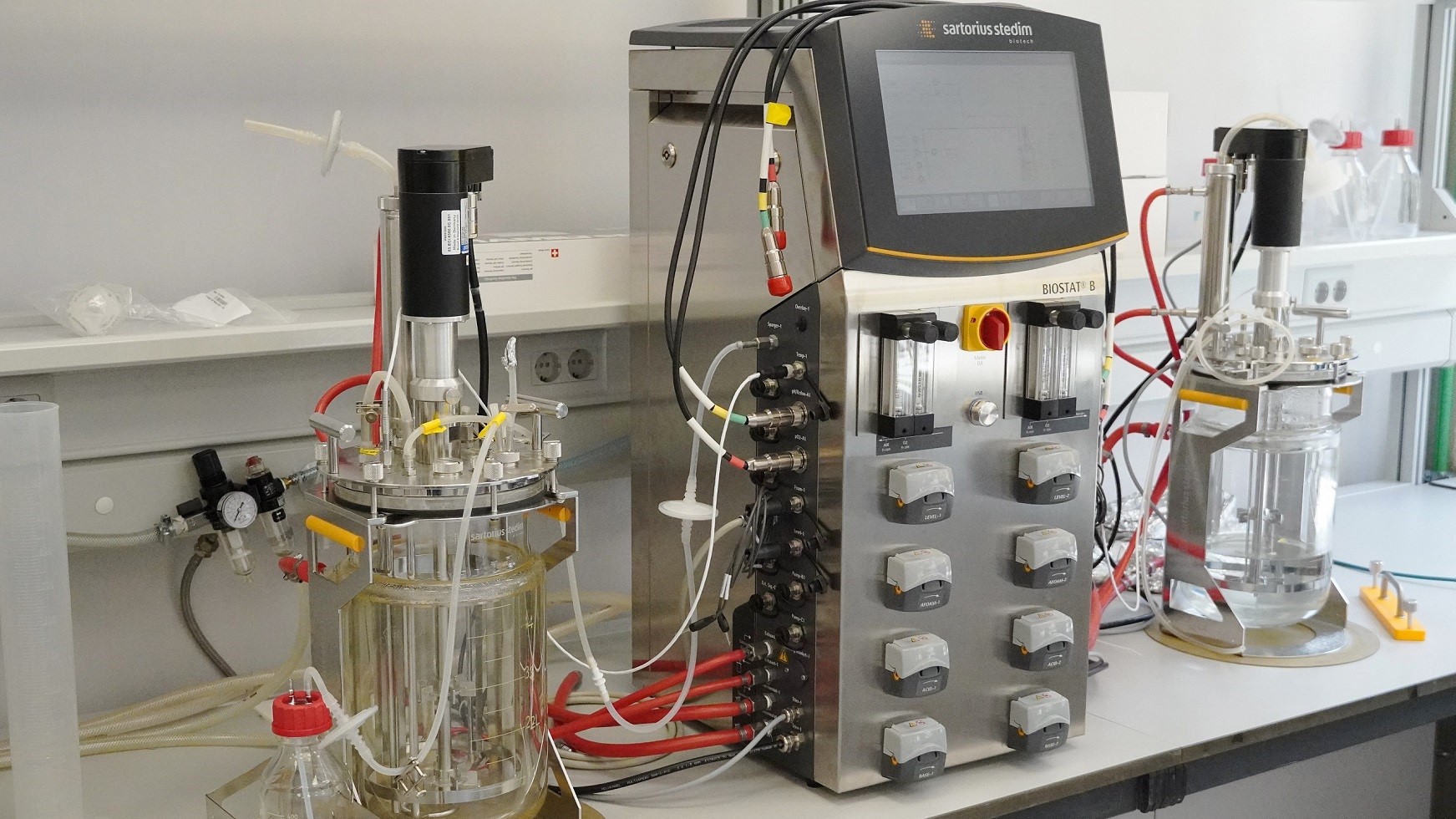- This R&D initiative aims to produce more sustainable wines, with lower alcohol content and richer aromatic profiles, while reducing energy consumption during fermentation
- The Institute of Agrochemistry and Food Technology (IATA-CSIC) leads this project financed with European funds, with the participation of the Institute of Marine Research (IIM-CSIC), the winery Ramón Bilbao and the technological SME INCONEF
The Institute of Agrochemistry and Food Technology (IATA-CSIC), Severo Ochoa center of excellence of the Spanish National Research Council (CSIC), presented last June, at its headquarters located in the University of Valencia Science Park (PCUV), its "experimental winery", a pilot plant where it will apply the technology known as 'digital twins' to wine production. This infrastructure has been developed within the framework of the DTWINE consortium, an R&D project that aims to apply and consolidate this technology in the wine sector. The event brought together different representatives and professionals of the sector.
A digital twin is a computer program that allows simulating and predicting the behavior of a real system using mathematical models. In the specific case of this project, the digital twin is expected to simulate and predict the wine fermentation process and, ultimately, to facilitate the work of winemakers in daily decision-making in wineries. Thus, the tests included in DTWINE are carried out on three scales: laboratory, pilot plant and real plant.
The presentation of this experimental winery corresponds to the pilot plant scale, where the performance of the digital twin is tested and analyzed in a realistic configuration. To develop the experiments necessary for the validation of the different possible realistic scenarios, a series of refrigerated stainless steel tanks (30 liters each) are used, as well as sensors installed in the tanks and the digital twin that allows to monitor the process, make predictions and optimize in real time. These experiments are carried out in the different possible conditions (optimal or with disturbances) that can occur in a winery, in order to evaluate and assess the benefits of the application of digital twins in winemaking.
"The size of the fermenters can simulate the real conditions that occur in a winery, so we can contribute to optimize processes by reducing energy consumption or reducing waste without testing in large volumes with the risk of significant economic losses," Amparo Querol Simón, research professor at CSIC
For Amparo Querol Simón, CSIC research professor who leads the implementation of this facility at IATA, "having an experimental winery will allow us to collaborate and help the wine industry. The size of the fermenters can simulate the real conditions that occur in a winery, so we can contribute to optimize processes by reducing energy consumption or reducing waste without testing in large volumes with the risk of significant economic losses. In this way, fermentation conditions could be optimized to improve wine quality, test different yeasts or additives in many grape varieties," she says.
Project DTWINE
DTWINE is a "strategic lines" research project that aims to apply and consolidate the revolutionary technology of digital twins in the wine sector. Specifically, this initiative foresees the development of digital twins, advanced monitoring and predictive model control algorithms to support winemakers in their work. In this way, two key objectives are pursued: to achieve more sustainable production and to respond to new consumption trends for wines with lower alcohol content and rich aromatic profiles.
"The DTWINE project will allow us to put the wine sector at the forefront in the use of digital technologies through the application of digital twins, techniques that are not widely used in the food and beverage industry," summarizes Querol.
"The DTWINE project will allow us to put the wine sector at the forefront in the use of digital technologies through the application of digital twins, techniques that are not widely used in the food and beverage industry"
DTWINE has a budget of one million euros and is financed by the State Research Agency (AEI) of the Ministry of Science and Innovation, with Next Generation EU funds under the Recovery, Transformation and Resilience Plan. The work is scheduled to be carried out over a period of 36 months, from October 2021 to September 2024. It will be carried out in four highly representative wine-growing areas of the Spanish wine sector: Galicia, La Rioja, the Basque Country (Rioja Alavesa) and the Valencian Community.
The Institute of Agrochemistry and Food Technology (IATA-CSIC) is leading this project, with the participation of the Biosystems and Bioprocess Engineering Group of the Institute of Marine Research (IIM-CSIC) in Vigo, the Rioja-based Bodega Ramón Bilbao and the Alavesa-based SME Instalación y Control de Energía y Fluidos (INCONEF). The initiative was launched in 2021 with the aim of achieving more sustainable winemaking and the production of wines with lower alcohol content and aromatic profiles closer to current consumer demand, thanks to the application of digital twin technology. In this case, digitalization will also reduce the energy consumption of wineries in the alcoholic fermentation processes of wines.
In the media


